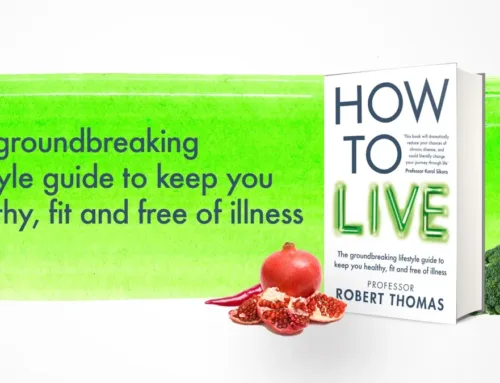It may surprise many people to hear that iodine deficiency is still one of the biggest worldwide public health problem of today. Its effects on the body are under emphasised, hidden and profoundly reduces the quality of human life. Iodine deficiency retards growth and development, and is the most common cause of preventable intellectual disability in the world – yet we are paying little attention to ensuring adequate dietary iodine intake. What’s more, the problem is getting worse as intensive cropping, resulting in large scale removal of biomass from the soil, as well as widespread use of alkaline fertilizers, is depleting iodine content in our food sources.
Health consequences of low iodine
In children, mental and physical retardation.
In adults Fatigue, reduced exercise performance, demotivation, poor memory, reduced intellect and in the longer term dementia. It is also linked to infertility and low immunity. After time a swollen thyroid can develop (goitre) as well as symptoms and signs of an under active thyroid (Hypothyroidism): Weight gain, puffy face, menstrual dysfunction, feeling the cold, lethargy, swollen joints, poor memory, heart disease.
Who are most at risk
- People who do not use iodized salt
- Pregnant women
- Vegans and people who eat few or no dairy products, seafood, and eggs
- People with marginal iodine status who eat a lot of foods containing goitrogens ( soy, and cruciferous vegetables)
Sources of Iodine
In the past iodine was added to salt and flour. Although you can still buy these it is no longer a government requirement so deficiencies will be seen more commonly. Good natural sources are seaweed (kelp, nori, kombu, and wakame). Fish and other seafood such as clams, oysters. Some free range eggs have iodine.
 Why take an iodine supplement
Why take an iodine supplement
It may be difficult to maintain normal mineral levels with a typical western diet especially if you don’t particularly like clams and eat a lot of (otherwise healthy) cruciferous vegetables such a broccoli, cauliflower, and asparagus. A well-made mineral supplement is a convenient way to ensure adequate intake evenly across the day and over the week. Unfortunately, most mineral supplements have too high or too low doses or omit completely minerals such as iodine.
PhytoMineral has been designed and developed by team of nutritional scientist to address the problems of iodine and other mineral deficiencies. It provides the precise daily requirements of the most important essential minerals – so not too much either. which is a common mistake in many supplement. Uniquely PhytoMineral is supported by whole organic ginger which makes it much more palatable. Ginger is rich in bio-enhancing natural phytochemicals which helps with iodine absorption and optimal use in the body. Ginger also has numerous other direct heath benefits such as helping digestion, reducing excess inflammation and enhancing antioxidant pathways.
References
- Kapil U. Health consequences of iodine deficiency. Sultan Qaboos Univ Med J. 2007 Dec;7(3):267-72. PMID: 21748117; PMCID: PMC3074887.>>
- PhytoMineral summary characteristics (2023): Naturemedical.co.uk
- Food and Nutrition Board, Institute of Medicine.Dietary reference intakes Minerals. Washington, DC: National Academy Press; 1999.
- How to Live (2022) Short books. Professor Robert Thomas (Waterstones)
- National Research Council, Committee to Assess the Health Implications of Perchlorate Ingestion. Health Implications of Perchlorate Ingestion
. Washington, DC: The National Academies Press, 2005.
- Institute of Medicine, Food and Nutrition Board. Dietary Reference Intakes for Vitamin A, Vitamin K, Arsenic, Boron, Chromium, Copper, Iodine, Iron, Manganese, Molybdenum, Nickel, Silicon, Vanadium, and Zinc
. Washington, DC: National Academy Press, 2001.
- World Health Organization. United Nations Children’s Fund & International Council for the Control of Iodine Deficiency Disorders. Assessment of iodine deficiency disorders and monitoring their elimination
. 3rd ed. Geneva, Switzerland: WHO, 2007.
- Patrick L. Iodine: deficiency and therapeutic considerations. Altern Med Rev. 2008 Jun;13(2):116-127. [PubMed abstract]
- Zimmermann MB, Jooste PL, Pandav CS. Iodine-deficiency disorders. Lancet. 2008 Oct 4;372(9645):1251-1262. [PubMed abstract]








Leave A Comment